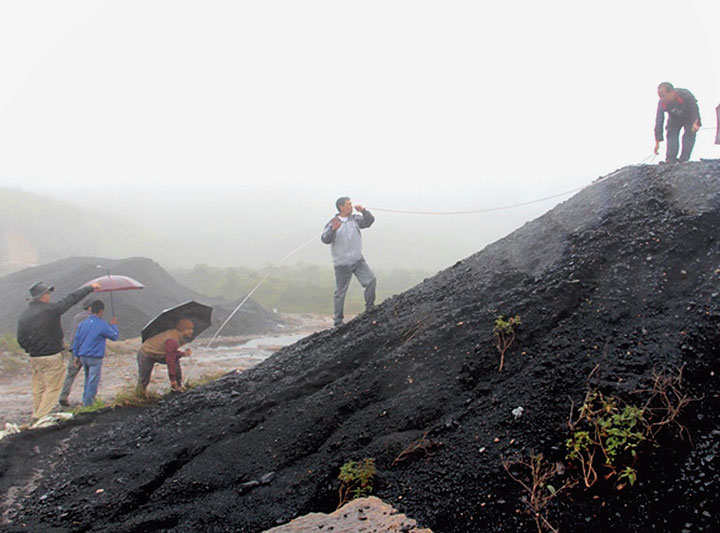A committee constituted by the National Green Tribunal (NGT) has reported that the ban on illegal rat-hole mining came as a boon for cement and thermal power plants in Meghalaya as they were virtually exempted from paying royalty, taxes, and other levies payable on more than two-third of coal consumed by them.
The finding contained in the fifth interim report of the committee, headed by Justice (retired) B.P. Katakey was considered by the tribunal in a hearing held on Thursday in New Delhi.
In the report, the committee mentioned of nine plants that together used 39,36,684 metric tonnes of illegally-mined coal during the 2014-15 to 2018-19 audit period.
The plants include Star Cement and its two subsidiaries, Amrit Cement, Dalmia Bharat Cement, Goldstone Cement, Green Valley Industries, Hill Cement, JUD Cement, Meghalaya Cement, and Shyam Century Ferrous Limited.
The amount payable as royalty on the 39,36,684 MT of illegally-mined coal was Rs 256.72 crore while the amount that should have been paid towards the Meghalaya Environment Protection and Restoration Fund (MEPRF) was Rs 190.92 crore. The amount payable towards VAT/GST was Rs 157.46 crore.
The report said except for Mawmluh Cherra Cements Limited, a state-owned public sector unit, and captive power plants of Maithan Alloy Limited and CMJ Breweries Private Limited, there was a huge gap in the quantity of coal required to produce reported quantity of clinker and/or power, and the coal reported to be purchased from legal sources by all cement plants and thermal power plants.
The committee was of the view that the entire gap of 39.36 lakh MT between the quantity of the coal required to produce reported quantity of clinker and electrical power, and the coal purchased by these plants from legal sources during the audit period constituting about two-third of the coal requirement of these plants was met from illegally mined local coal.
Most of these plants are in East Jaintia Hills, rich in coal deposits.
“Continuance of illegal rat-hole mining in Meghalaya to meet the huge requirement of coal for these cement and thermal power plants has caused huge damage to the flora and fauna, waterbodies, and the environment. It has also made the ban imposed by the NGT on illegal rat-hole mining virtually inoperative,” the report added.
The report said the claim of the cement and thermal power plants that about two-third of their coal requirement had been met by a non-fuel mineral, that is, slate, without making any change in the design of these plants was not tenable.
“These plants had purchased illegally-mined local coal in the name of slate to circumvent the ban on illegal rat-hole mining, and to evade payment of royalty, GST/VAT, MEPRF, on the coal utilised by them,” the report added.
The regulatory authorities, instead of initiating action against the plants, tried to regularise/justify the use of illegally-mined coal by accepting royalty on slate claimed to be used by these plants, and by supporting the claims of these plants that it was technically and legally feasible to replace two-third of the coal requirement by a non-fuel material like slate, it said.
The report further stated that as per information provided by the state mining and geology department, none of the plants had participated in a public auction conducted by the state government to sell more than 38,000MT of seized coal available at locations in close vicinity of a majority of these plants.
“The committee, therefore, is of the view that a major part of the coal requirement of these plants is still being met from illegally mined local coal,” the report said.










